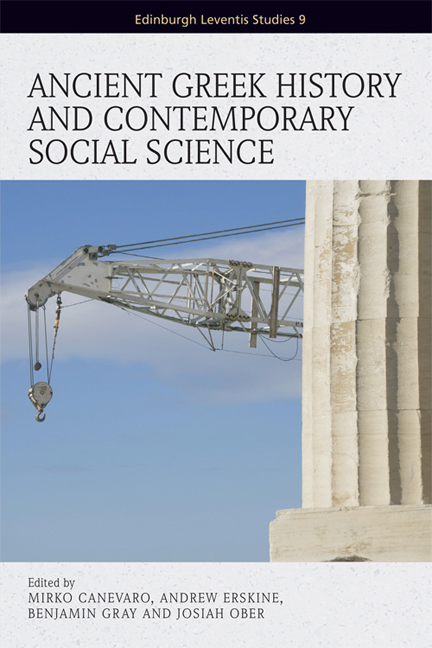3 - Approaching the Hellenistic Polis through Modern Political Theory: The Public Sphere, Pluralism and Prosperity
Published online by Cambridge University Press: 06 May 2021
Summary
THE HELLENISTIC POLIS AND CONTEMPORARY METHODS IN THE STUDY OF POLITICS AND POLITICAL THOUGHT
Modern political and social theory have long stood in a fruitful, mutually reinforcing relationship with historical study of the Greek polis and its political thought. This relationship has been rooted in theoretical and historical study of the city of Athens, as a paradigmatic and problematic democracy, especially during its classical period of imperial and cultural flourishing (c. 478–322 BCE). Greek historians interested in contemporary social and political theory, and contemporary theorists interested in the Greek polis, have tended to dedicate less attention to other Greek cities, and to other periods in the history of the Greek polis. There has been relatively little focus, for example, on the subsequent Hellenistic period (c. 323–31 BCE), from the death of Alexander the Great to the establishment of the Roman principate.
Although leading philosophies of the Hellenistic period, especially Stoicism and Epicureanism, have played an important role in discussions of ancient and modern ethics and sociology, the Hellenistic city itself has not figured so prominently in those debates. This is partly because the Hellenistic polis was long regarded as a poor, emasculated and depoliticised shadow of the classical polis, especially of imperial Athens. Hellenistic shadow-poleis were seen as eclipsed by the much more expansive Hellenistic kingdoms and their courts, and then by the developing Roman Empire. This disparaging assessment has been dispelled by recent decades of Hellenistic scholarship, which have demonstrated the vitality and range of Hellenistic civic life, institutions and thought: far from ‘dying at Chaironeia’, the Greek polis remained a dominant social, cultural and political form, which helped to shape the ever more interconnected Mediterranean of the Hellenistic kingdoms and then the Roman Empire. This has now prompted innovative contributions which have sought to bring the Hellenistic polis into the ongoing contemporary debate about the Greek city and modern citizenship.
In this chapter, I focus on one way in which study of the Hellenistic polis can harness methods and approaches of contemporary political and social theory.
- Type
- Chapter
- Information
- Ancient Greek History and Contemporary Social Science , pp. 68 - 98Publisher: Edinburgh University PressPrint publication year: 2018



